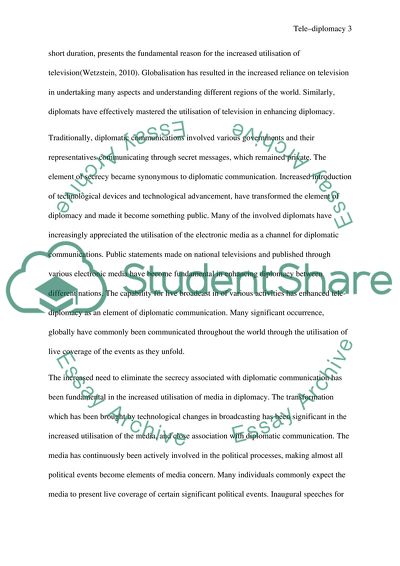Cite this document
(Mass Communication and Diplomacy Report Example | Topics and Well Written Essays - 2250 words, n.d.)
Mass Communication and Diplomacy Report Example | Topics and Well Written Essays - 2250 words. https://studentshare.org/media/1817077-critically-evaluate-the-theoretical-coherence-and-importance-of-the-phenomenon-of-tele-diplomacy
Mass Communication and Diplomacy Report Example | Topics and Well Written Essays - 2250 words. https://studentshare.org/media/1817077-critically-evaluate-the-theoretical-coherence-and-importance-of-the-phenomenon-of-tele-diplomacy
(Mass Communication and Diplomacy Report Example | Topics and Well Written Essays - 2250 Words)
Mass Communication and Diplomacy Report Example | Topics and Well Written Essays - 2250 Words. https://studentshare.org/media/1817077-critically-evaluate-the-theoretical-coherence-and-importance-of-the-phenomenon-of-tele-diplomacy.
Mass Communication and Diplomacy Report Example | Topics and Well Written Essays - 2250 Words. https://studentshare.org/media/1817077-critically-evaluate-the-theoretical-coherence-and-importance-of-the-phenomenon-of-tele-diplomacy.
“Mass Communication and Diplomacy Report Example | Topics and Well Written Essays - 2250 Words”. https://studentshare.org/media/1817077-critically-evaluate-the-theoretical-coherence-and-importance-of-the-phenomenon-of-tele-diplomacy.


